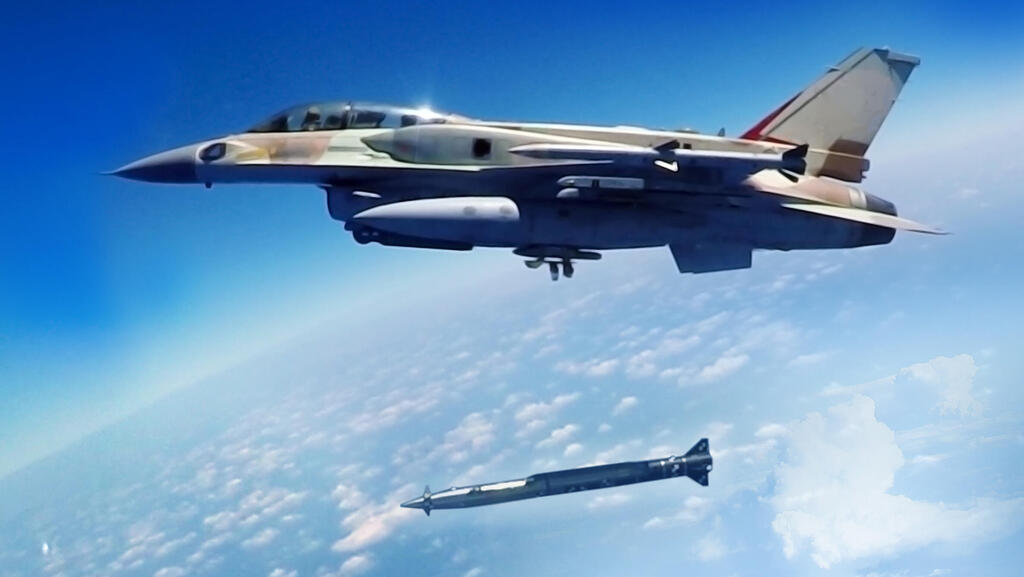
Elbit CEO: "We recruited hundreds of employees and brought back retirees due to demand and war"
Elbit CEO: "We recruited hundreds of employees and brought back retirees due to demand and war"
Some 2,000 of the employees of the public security company were called up to the IDF reserves due to the war in Gaza. Elbit supplied the IDF, among other things, with the "Iron Sting" precision mortar; In the third quarter, the company's net profit increased by 8.2% to $61 million
Elbit Systems has presented good results for the third quarter of the year, which it concluded with an 11.3% increase in sales compared to its sales in the corresponding quarter last year, which amounted to approximately $1.5 billion. During the first nine months of the year, its revenues grew by almost 9% compared to the corresponding period and amounted to approximately $4.3 billion.
The public security company controlled by Michael Federman presented in the quarter an increase of about $2 billion in its order backlog compared to the corresponding quarter and it amounted to about $16.6 billion. Its backlog is similar in scope to that of its main competitor, Israel Aerospace Industries (IAI), which published its results for the third quarter at the end of last week.
Elbit's net profit increased in the third quarter by 8.2% compared to the net profit it presented in the corresponding quarter last year and it amounted to approximately $61 million. Since the beginning of the year, its profit amounted to $185 million, a decrease of about 2.5% compared to the first nine months of 2022.
In the second quarter there was a 23% decrease in net profit. The CEO Bezalel Machlis told Calcalist then that profitability was hurt by the Ministry of Defense not paying the company.
Its Non-GAAP net profit amounted to $73.5 million in the third quarter and in the first nine months of the year amounted to approximately $220 million. Its operating profit in the quarter amounted to $117 million, which is 7.8% of the revenues compared to an operating profit of $84.3 million in the corresponding quarter (6.3% of the revenues).
The president and CEO of Elbit Systems in Bezalel Machlis told Calcalist that the company's results in the quarter and the improvement in its profitability "give us confidence in our ability to meet our long-term plans and overcome the current challenges on the way to achieving a sales target of approximately $7 billion a year and a profitability target of 10%. The growth in the backlog and the demands that arise from the local market and the international markets support this, and possibly beyond the $7 billion target."
About 80% of Elbit's sales are directed to the world market, with unprecedented demand for weapons systems as a result of the war between Russia and Ukraine and the improvement of the preparedness of armies for flare-ups in other conflict zones.
Added to these is the war in Israel, which forces the defense companies to prioritize and advance the delivery of weapons and systems to the IDF. The effects of the war on Elbit are not evident in the reports it published today and will be reflected in the fourth quarter reports against the background of panic orders sent to it by the Ministry of Defense during the past few weeks.
According to Machlis, "We supply the IDF with many systems and products that are deeply integrated into its operational activities within the framework of the war, we have accelerated both the supply of products and the development plans for new products. From the beginning of the war, we are all involved in the war effort and work throughout the week and during all hours of the day."
Elbit refuses to reveal systems that were given to the IDF for use as part of the war and those that are in development stages and accelerated towards maturity. One of its products that was revealed during the fighting in Gaza and on the border with Lebanon is the "Iron Sting" precision guided mortar munition that was used by the IDF forces in precision attacks on targets. It is a 120 mm mortar with dual guidance of laser and GPS that allows hitting targets while minimizing the risk of harming innocents.
About 2,000 of Elbit Systems' employees, which are about 15% of its workforce in Israel, were called up to emergency IDF reserve service since the outbreak of the war which forced Elbit to embark on an extensive recruitment operation of hundreds of new employees - mainly for the production lines at its facilities throughout the country. According to Machlis, "we recruited many hundreds of employees, and among other things, we also brought pensioners of the company back to work."
He added that the urgent operational needs of Israel's defense system, along with the many orders from its customers around the world, pose a significant challenge to Elbit and it is meeting it, partly through its dozens of subsidiaries around the world. "This is a significant point of strength for us that is manifested in such a time and helps us preserve Elbit's positions in the world while maintaining its connection and marketing efforts in a way that proves its global strategy for presence in the target countries where it operates," he said.















